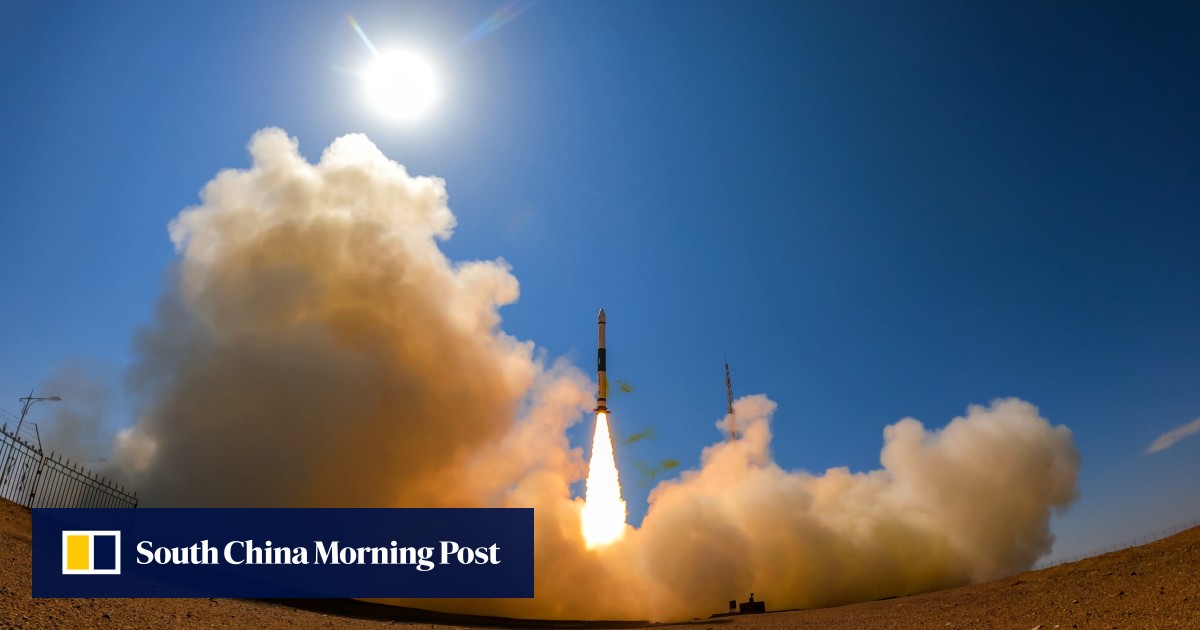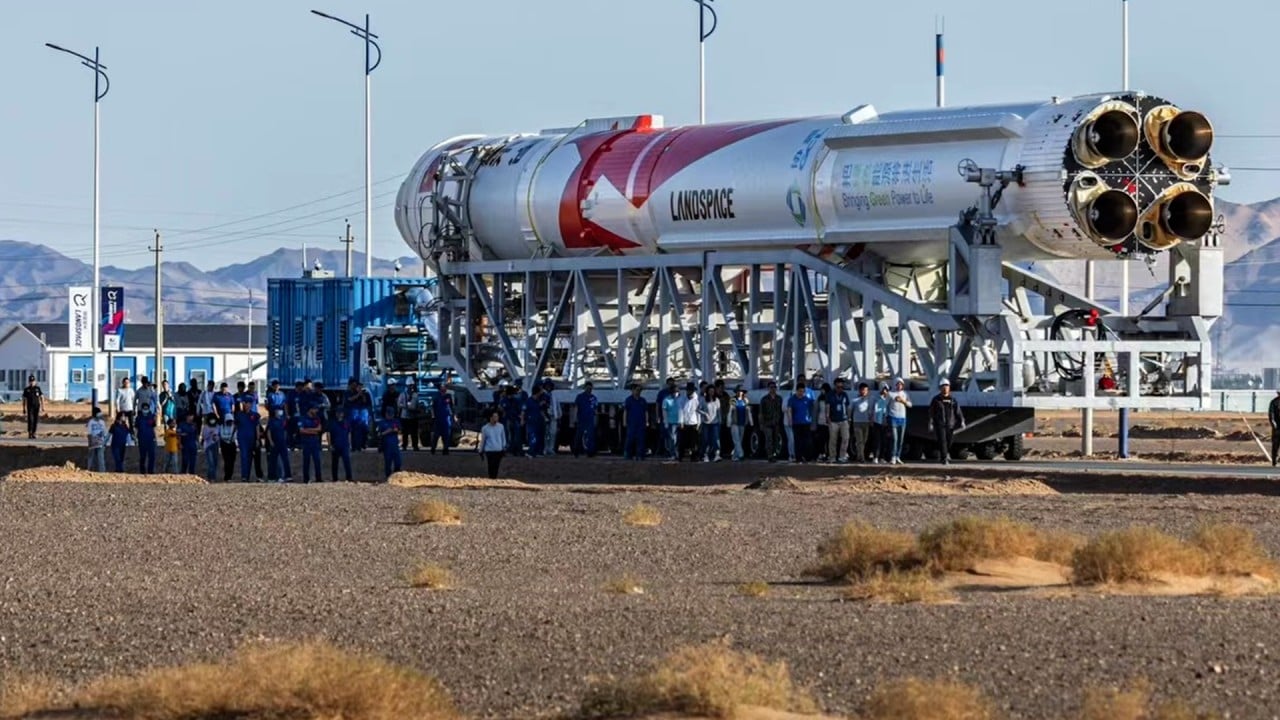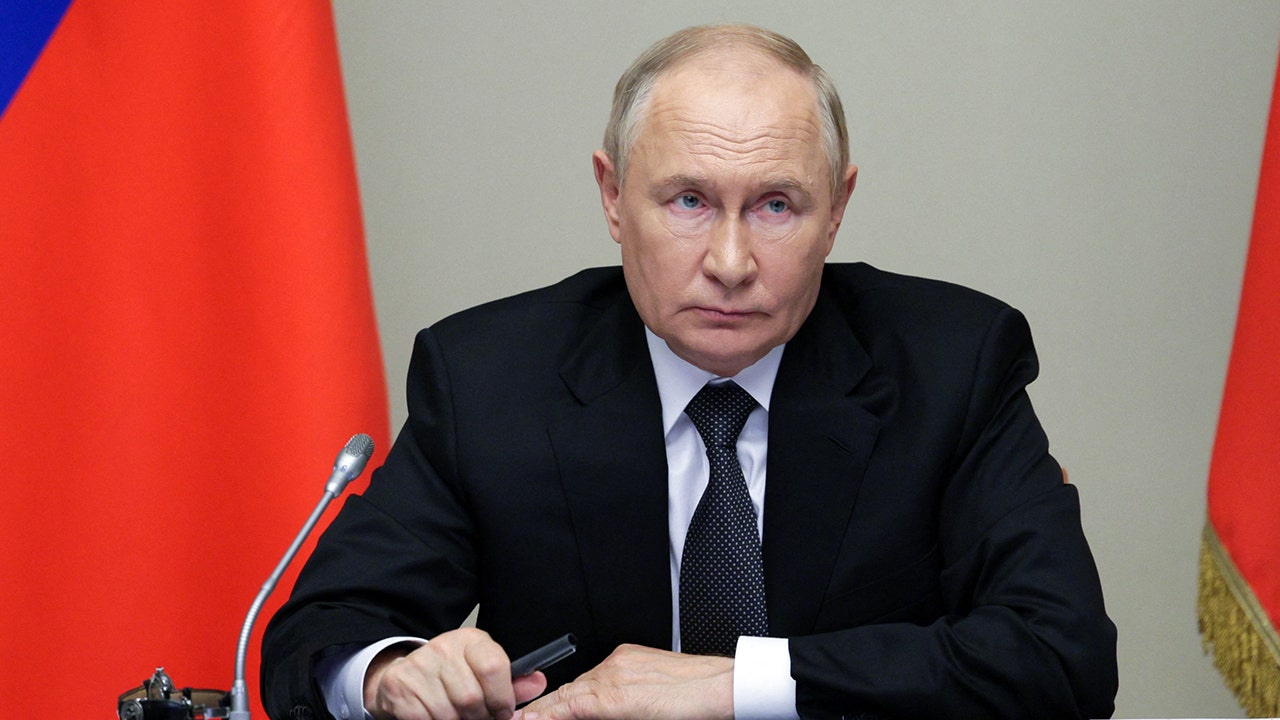Tech
US general raises alarm over ‘breathtaking’ growth in China’s space tech

“[It is also] extending its ability to conduct long-range fires, improving the precision and reach, thus the lethality, of its terrestrial forces.”
China’s defence ministry responded by saying the US was using so-called threats from other nations as an excuse to expand its own military power.
“China has always insisted on the peaceful use of space, opposed an arms race in space … We urge the US to abandon its cold-war zero-sum mentality, stop disseminating false information and stop the arms race in space,” ministry spokesman Zhang Xiaogang said.
In 2024, China plans 100 rocket launches to send 300 spacecraft into orbit
In 2024, China plans 100 rocket launches to send 300 spacecraft into orbit
In his testimony on Thursday, Whiting described Beijing as Washington’s “principal space competitor” along with Moscow, and said that by many estimates, China would achieve world-class status in all but a few space technology areas by 2030.
“There is an urgency for our command to advocate for delivery of new space capabilities and capacity to retain an enduring competitive advantage.”
Whiting said China was working on advances in satellite meteorology, human spaceflight, and robotic space exploration, with its network of intelligence satellites rising to “more than 359 systems as of January”, or more than triple its presence in 2018.
“With their space and counterspace systems, they have dramatically increased their ability to monitor, track and target US and allied forces, both terrestrially and in orbit,” Whiting said, referring to China.
Some of the newly deployed satellites might also operate as weapons that could pose risks to US assets, he said.
In addition, Beijing is developing hypersonic glide vehicles and other advanced space weaponry that have the potential to overcome US traditional missile warning and ballistic missile defence systems, according to Whiting.
The rivalry in space between China and the US has intensified in recent years, with rapid expansions of satellite networks and associated technology.
The US and China have ratified the 1967 Outer Space Treaty, which forbids the use of nuclear weapons and other weapons of mass destruction in space.








